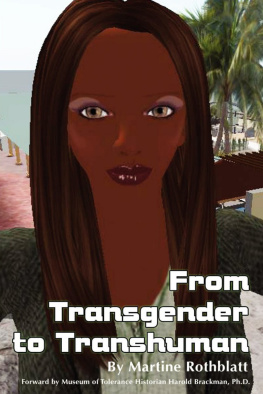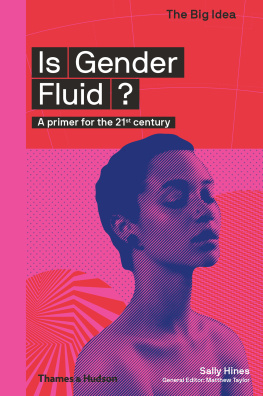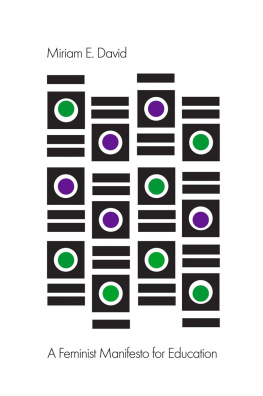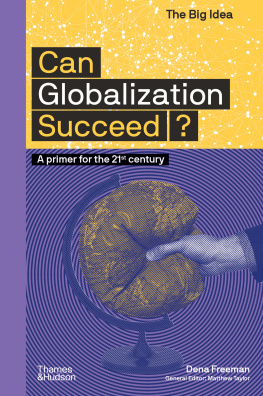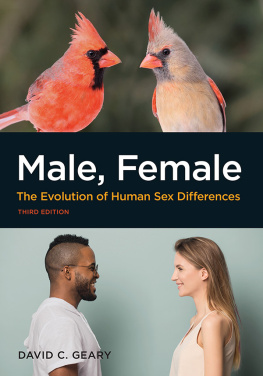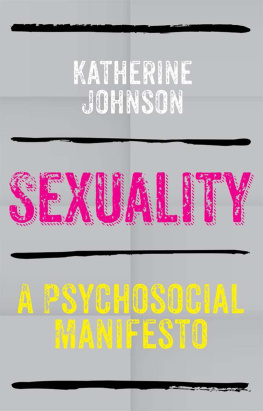
Copyright 2011
Martine Rothblatt
All Rights Reserved.
Printed in the U.S.A.
Edited by Nickolas Mayer
Cover Design by Greg Berkowitz
ISBN-13: 978-0615489421
ISBN-10: 0615489427
eBook ISBN: 978-1-61914-309-8
For Bina
CONTENTS
__________________________
by Museum of Tolerance Historian
Harold Brackman, Ph.D.
__________________________
by Museum of Tolerance Historian Harold Brackman, Ph.D.
Martine Rothblatts The Apartheid of Sex 15 Years Later:
A Fans Personal and Historical Appreciation
Martine and Me
Our efforts to simplify reality
cheat others and cheat ourselves.
Martine Rothblatts The Apartheid of Sex (1995)written with the precision and persuasiveness of a lawyers brief and the power of a visionary manifestowill be viewed by most readers, today and in years hence, as making the case for the transgender movement at a critical juncture in its emergence. Given my long though interrupted association with Martine, which started in the 1970s when then-Martin was an incredibly talented, ambitious UCLA undergraduate living on a shoestring while raising an astonishingly beautiful multi-racial toddler, mine is a more personal perspective. The book and the author for me are part of a web of influences in which my own life as an historian and a man (if Martine will forgive my use of that gender-specific designation!) have been profoundly implicated.
Martine is remarkably knowledgeable and accomplished across a spectrum ranging from law to astronomy to business startups to genetic mapping to bioethics and biotech. So Im sure she wont begrudge my claiming an expertise not on her listthat of an historian. What I want to do here is view The Apartheid of Sex through several differing yet complementary historical lenses that may enrich the readers appreciation of this watershed book that changed my mind and may change yours. First, however, let me look at how this book makes its case.
The Structure of the Argument
In the future, labeling people at birth as male or female will be considered just as unfair as South Africas now-abolished practice stamping black or white on peoples ID cards.
Though now a biotech CEO rather than the practicing telecommunications law specialist she once was, Martine crafted her book with a lawyers skill. The reader will note that repeatedly it makes both primary and secondary arguments so that, even if the former dont succeed, the latter may prevail. The Apartheid of Sex is a book about the biological and behavioral markers of sex and gender. Its critique of the biology of either/or sexual dimorphism and its attack on the behavioral patterns that maintain traditional gender hierarchies are reinforcing yet not dependent on each other for their truth.
The Apartheid of Sex makes scientific arguments (which I think would have impressed Charles Darwin), based on naturalistic evidence drawn from both animal and human evolutionary biology, to support its conclusion that there are no absolute binary male-female distinctions in nature. This summary of the evidence from the animal kingdom produced an indelible impression on me: The slipper shell ( Crepidula fornicate )... lives in oyster beds and gradually changes from male, to hermaphrodite, to female in old age. On the other hand, certain Caribbean coral-reef fish start out female and die as males. Many types of fish, such as butter hamlets and swordtails, change sex back and forth to balance the ratio of males to females currently around them. The sex ratio expressed by these types of fish depend on their social surroundings.
Yet suppose the reader refuses to follow Martine in extrapolating from such evidence to her conclusions about the fluid continuum of sex types and male-female human biological differences, and rejects her view that these differences are insignificant compared to the overriding fact of the commonality of the transgendered brain. Even then, her book makes a powerfulto me irresistiblecase that, assuming an irreducible minimum of biological difference between male and female, these differences are still entirely insufficient to justify the ponderous behavioral superstructure of gender segregation and inequality that have been built into societys fabric. This discriminatory superstructure is rooted in culture as well as society, and Martine is very hardperhaps too hardon the worlds religions (which sometimes have inspired positive change-oriented movements) for being a regressive force: The thrust of early Buddhism, Hinduism, Islam, and Judeo-Christianity was to make women ashamed of their bodies and to thus make it easier for men to control them.
Martine buttresses her argument against gender discrimination by analyzing the parallels with racial apartheid. The anti-miscegenation laws that imposed a Nazi-like ban on intermarriage across racial lines were carried over from slavery to segregation, persisting until the right to marry of an interracial couple was upheld by the U.S. Supreme Courts landmark decision in Loving v. Virginia (1967). Except for the bravery of Richard Loving (who died in 1975) and Mildred Loving (who died in 2008), premier golfer Tiger Woods might not be in a position today to positively describe himself as a CABLASIAN (Caucasian-Black-Asian American). Partly because of the pioneering consciousness raising by Martines The Apartheid of Sex , the day may be coming when laws against same-sex marriage will be viewed as unjust and anachronistic as laws against interracial marriage. As Martine notes, immutable race is already becoming choosable culture. The next domino to fall is immutable gender!
The 1990s Context
For most people societys gender rules are so powerful that they simply go with the flow. But in every society there are the free spirits, the stubborn, and the insistent. In the 1960s they fought for civil rights. In the 1990s they fight for gender rights.
The Apartheid of Sex and Barack Obamas Dreams from My Father (1996) appeared on best seller lists within 12 months of each other. What do these books have in common? First, two extraordinary authors, each with a story to tell. The difference between them in the mid-1990s was that Obamas autobiography of multi-racial origins and the search for African American identity was written by a young man, still in his early thirties, whose life trajectory at the time was defined less by his impressive accomplishments (Ivy League education, president of the Harvard Law Review , South Side Chicago community organizer) than by the unlimited political potential ahead of him. In contrast, Martine Rothblatt, in her early forties, was already a pioneering telecommunications lawyer, visionary entrepreneur, and successful negotiator of the transgender life change that gives the dimension of personal witness and authority to her book.
Though Martine does not note it in her book, she was actually born in the same American heartland city that was Obamas career destination. From Chicago, Martines father, the son of a dentist for the Retail Clerks Union, and mother, a speech therapist, moved the Rothblatt family to Southern California.
We can see in retrospect that both Obamas and Martines books and lives reflect a sea change that was occurring in American culture in the 1990s. Obamas end point is his mature African American identity achieved by coming to terms with his heritage from a distant Kenyan father, but the books dramatic interest to most readers was the dynamic tale of how Obama navigated his way to this positive result though a perilous sea of cultural ambivalences and psychological conflicts played out on a global stage spanning Hawaii, the American heartland, and his fathers African homeland. Like a hero of Charles Dickens, Obama discovers who he is, but only through pluck and luck. He finally achieves the status of a son who is not so much chosen as self-chosen. Truly, this is an inspiring American as well as African American success story and an autobiographical gem in a tradition running from Frederick Douglass to Malcolm X.
Next page
